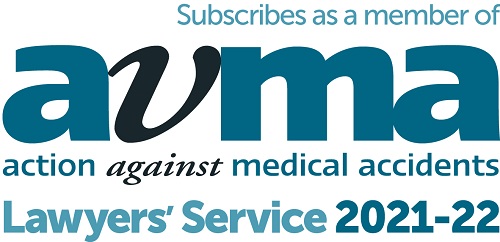When Covid-19 came into the spotlight in March 2020, life changed for all of us. Despite the difficulties, at Clime Associates we have maintained our focus and dedication to helping those who are in need of legal advice and guidance.
The Covid-19 pandemic has been devastating. The NHS had the unenviable task of having to put in place measures that enabled them to be prepared for the influx of patients, the specialist care they required, the threat of cross contamination from patient to patient and many other things in a very short period of time with little warning. Medical professionals were brought out of retirement and from other areas to assist with the increase of patients. Specialist hospitals were built. The NHS have rightly been applauded and dubbed heroes in their endeavours.
What was usual practice was suddenly not possible. Adaptation was required. What does not adapt is the duty of care owed to patients. A clinician has a duty of care to their patient to provide reasonable treatment. Practices must adapt to ensure that reasonable care is maintained regardless the situation.
The duty of care does not pause for a pandemic. It should not be accepted that failing to identify patients with potentially life threatening injury and providing no treatment is necessarily reasonable. It cannot be right to substitute a potential death from Covid-19 for a potential death from an undiagnosed or untreated condition.
Of course, we are not suggesting that allowances should not be made for the unprecedented conditions Covid-19 thrust upon our NHS and medical practitioners. Clinical negligence claims are not easy and the burdens of proof are, quite rightly, set at a high level.
The test is to consider if the treatment received would have been given by a number of doctors, even if they are in the minority, faced with the same presentation at the relevant time and as such, Covid-19 effects would be taken into account. If is the case that the treatment was considered reasonable in those circumstances then the claim rightly will not succeed.
However, if the treatment was such that no clinician would have made the same decisions and that this has led to an injury over and above that a patient would have had in any event, there is potential negligence.
Patients with Covid-19 have shown a variety of symptoms and outcomes from mild and manageable at home, to the most severe requiring treatment in hospital, which in many cases sadly resulted in the loss of patients. Many of those who have survived are left with life changing complications.
It is easy to focus on those who had the diagnosis. However, there are patients whose stories have not been televised or commented upon so readily. These are the patients who required urgent treatment for a condition other than Covid-19. Those who developed life threatening conditions and who may not have received the treatment that was necessary which has resulted in exacerbation of their condition, some to the most severe degree.
Accident and Emergency Departments saw a severe drop in attendances through their doors. It was well publicised that there were concerns from A&E doctors that people were scared to visit hospitals and as such were not receiving the care they needed. Of course, if you did not attend hospital, doctors are not given a chance to treat you. However, if you did attend and you did not receive the treatment you needed, this is potentially negligent.
There are many conditions that simply cannot wait months for diagnosis and treatment and require prompt care to be provided. Cardiology problems (such as suspected heart attacks) cannot be turned away and require not only swift recognition and referral from the A&E team, but also swift diagnosis and treatment from the cardiology team. Stroke has a very limited window of opportunity to recognise and treat to avoid severe complications. Sepsis is another example of a condition that requires swift intervention because if untreated it can lead to complications such as multiple organ failure and lifelong problems.
There have also been instances where patients have been turned away and referred to practices which were not open. Given that many usual providers of treatment, such as GPs or dental practices, were not open or available to patients for some time, it cannot be right for the hospitals and clinicians to simply refer people to these care providers knowing that they were not available for conditions that required urgent treatment to avoid serious injury.







